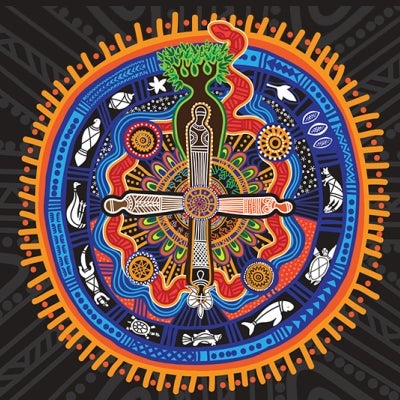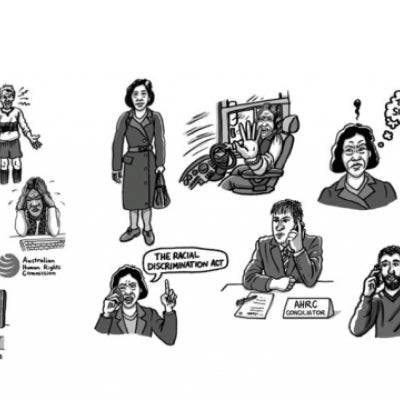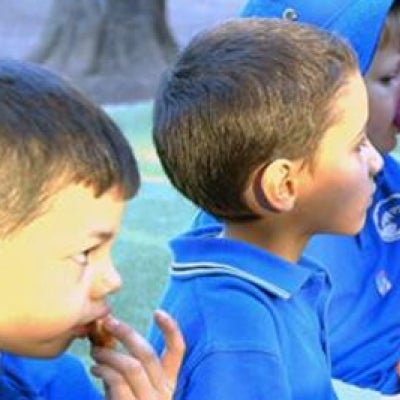Refine results
-
14 December 2012Book page
Preventing Crime and Promoting Rights for Indigenous Young People with Cognitive Disabilities and Mental Health Issues Appendix 2
In order to establish what is provided for Indigenous young people with cognitive disabilities and/ or mental health problems, information was requested from all relevant government departments across Australia.[213]A letter was sent to departments requesting: -
Commission – General14 December 2012Webpage
Convention on the Rights of Persons with Disabilities - Human rights at your fingertips - Human rights at your fingertips
Recalling the principles proclaimed in the Charter of the United Nations which recognize the inherent dignity and worth and the equal and inalienable rights of all members of the human family as the foundation of freedom, justice and peace in the world, -
Legal14 December 2012Webpage
Submission: MIGRATION AMENDMENT (DESIGNATED UNAUTHORISED ARRIVALS) BILL 2006
1.1 The Human Rights and Equal Opportunity Commission (‘The Commission’) has been invited by the Senate Legal and Constitutional Legislation Committee (‘the Committee’) to make submissions on the Migration Amendment (Designated Unauthorised Arrivals) Bill 2006 (‘the Bill’). 1.2 The Commission welcomes the opportunity to make this submission and thanks the… -
Legal14 December 2012Webpage
HREOC submission to Inquiry into Immigration Detention in Australia
Recommendation 1: The Migration Act should be amended so that detention occurs only when necessary. This should be the exception not the norm. It must be for a minimal period, be reasonable and be a proportionate means of achieving at least one of the aims outlined in international law (ExComm Conclusion 44). These limited grounds for detention should be clearly prescribed in the Migration Act. -
14 December 2012Book page
HREOC Report No. 18
1. The commission's jurisdiction 2. The complaint 3. The complainant's evidence and submissions 4. Respondent's response 5. Documentary material before the commission 6. Conciliation 7. Preliminary findings of Commissioner Sidoti 8. Response to Commissioner Sidoti's preliminary findings 9. My Further Preliminary Findings 10. Respondent's response to my Further Preliminary Findings 11. Section 21… -
Employers19 February 2015Quick Guide
Sexual Orientation, Gender and Intersex Discrimination
The Sex Discrimination Act makes it unlawful to discriminate against someone because of their sexual orientation, gender identity or intersex status. Sexual orientation discrimination happens when a person is treated less favourably than another person in a similar situation because he or she has a sexual orientation towards persons of the same sex; persons of a different sex; or persons of… -
16 May 2013Project

Supporting participation in key international forums
The Commission welcomes proposals for funding to support the participation of people with disability and organisations representing people with disability to attend key international forums on human rights -
Legal4 September 2015Project

BSWAT: temporary exemption
On 18 December 2015 the Commission granted a limited, conditional, temporary exemption to the Commonwealth and certain ADEs. -
LGBTIQ+28 June 2017Project

Sogi's Story
This is SOGI’s Story, but it’s many others too. Discrimination on the basis of sexual orientation and gender identity is pervasive across many parts of the world. Addressing this burden of discrimination has been identified as a key issue by the Commonwealth Forum of National Human Rights Institutions. Recognising the importance and power of education, SOGI’s Story has been designed in -
Aboriginal and Torres Strait Islander Social Justice6 December 2017Project

Bringing Them Home - interactive educational resource
Bringing them Home was the name given to the final report of the National Inquiry into the Separation of Aboriginal and Torres Strait Islander Children from Their Families conducted by the Human Rights and Equal Opportunity Commission (now called the Australian Human Rights Commission). The National Inquiry into the Separation of Aboriginal and Torres Strait Islander Children from Their… -
Employers17 February 2015Quick Guide
Dating in the Workplace
It is common for relationships and attractions to develop in the workplace. As an employer, it is important to ensure that these circumstances do not lead to incidents of sexual harassment. Sexual harassment is any unwanted or unwelcome sexual behaviour where a reasonable person would have anticipated the possibility that the person harassed would feel offended, humiliated or intimidated. It… -
Children's Rights24 August 2017Project

Child Safe Organisations
The National Principles aim to provide a nationally consistent approach to creating organisational cultures that foster child safety and wellbeing across all sectors in Australia. -
Children's Rights8 December 2014Project
Child-friendly version of the Children's Rights Report 2014
In December 2014, the National Children's Commissioner published a child-friendly version of her Children’s Rights Report 2014. The child-friendly report is a short, easy-to-read summary of the contents of the National Children's Commissioner's report to Parliament. The National Children's Commissioner wanted children and young people to be able to access easily the findings of her report… -
Race Discrimination5 November 2015Project

Racial discrimination? Know your rights
The Racial Discrimination Act 1975 marked a new era in Australian race relations. Resources developed for its 40th anniversary raise awareness and offer educational tools. -
14 December 2012Book page
Native Title Report 2001: Chapter Three: Negotiating co-existence through framework agreements
A stable and enduring basis for a dynamic and long term relationship between Indigenous and non-Indigenous people over land is emerging through negotiation and agreement-making. Native title agreements are increasingly seen as an important tool in defining the rights of native title holders over their land. But here, as in other aspects of native title, there is concern that there are currently… -
Children's Rights26 August 2014Project

Statement of Intent on Children's Rights in Early Childhood Education and Care
In 2014, the National Children's Commissioner worked with Early Childhood Australia (ECA) to develop a Statement of Intent on Children’s Rights in Early Childhood Education and Care (Statement of Intent). The Statement of Intent identifies priority areas for action. It is a practical tool designed to help early childhood educators understand Australia's obligations to children, and to… -
14 December 2012Book page
4. Australia's Human Rights Obligations
The purpose of this chapter is to explain the relevance of international human rights law to children in Australia's immigration detention centres and to provide a quick reference point on the fundamental human rights principles that have influenced the approach of this Inquiry. This chapter also explains the role of United Nations (UN) guidelines in the Inquiry's analysis of Australia's human… -
14 December 2012Book page
Native Title Report 2007: Chapter 1
Native title is now well established in Australian law. The native title system was set up in 1994 under the Native Title Act 1993 (Cth) (the Native Title Act). It is for gaining recognition and protection of native title, and for resolving native title matters. It has been successfully used in many parts of the country. -
14 December 2012Book page
Native Title Report 2006: Chapter 2: Economic Development Reforms on Indigenous land
In 2006 the Secretary of the Department of Prime Minister and Cabinet made a revealing statement about Indigenous affairs. He argued that his own government’s policy performance in the Indigenous portfolio had been a failure. He went further to say that while well intentioned, the policies and approaches of the past 30 years had contributed to poor outcomes for Indigenous people. -
Legal14 December 2012Webpage
Freedom of Information
Any person, which includes persons resident in Australia or abroad, whether or not they are Australian citizens, companies, prisoners or children may make a Freedom of Information request.
